“In music, one doesn’t make the end of the composition the point of the composition. If that were so, the best conductors would be those who played fastest; and there would be composers who only wrote finales…
…We thought of life by analogy, it was a journey, with a pilgrimage, which had a serious purpose at the end. And the thing was to get to that end – success, or whatever it is, or maybe heaven after you’re dead. But we missed the point the whole way along….
It was a musical thing, and you were supposed to sing, or to dance, while the music was being played.” Alan Watts
Born in small-town New Zealand to a safe, loving but imperfect family, it’s hard to believe I’ve always inherently understood such a concept as this. A concept I couldn’t really find the words to describe until midlife. Then again, perhaps we all know it deep down, in spite of the overwhelming pressure and incessant nagging of society to set goals, achieve, accomplish, level up, repeat. Still, here I am – writing, sharing my music….. it seems all in the name of reaching some sort of an end goal…
Or am I?
In this, the age of capitalism, could it even be possible that someone might want to share their creative talents for no reason other than because they are enjoying their own personal song and dance? Because they are inspired and revealing in the beauty of the moment, the joy of sharing and connecting?
I’m not a fully enlightened being, so I don’t think I’ll ever be able to answer that question in complete self-awareness and truth. But I can say I’m enjoying my moments – every torturous, stunning, transcendent one. I can also say, in all honesty, that dancing together is a lot more fun than dancing alone.
Musicians all have very different relationships with music.
In my youth I sort of lumped us together – a bunch of tortured misfits desperately needing attention and validation; seeking comfort in our instruments; creating identity and meaning through musical talent.
I now understand that this certainly isn’t the case. We’re not all extroverts, and we’re not all introverts. Many of us are highly sensitive empaths, while others are completely self-centred narcissists.
My own personal relationship with music started as a coping mechanism.
Oddly, yet perhaps also understandably, it seems that I entered the world in a state of existential crisis. By all accounts I was a highly sensitive baby who grew into a highly sensitive child. At the age of four I recall coming to the realization that the food on my plate had been a living, breathing, feeling being. I began to protest. By nine I was permitted to be vegetarian.
At six years old I started to feel the weight of aging, I knew I was getting older and I understood that death was coming. I felt the suffering of the planet and worried about its people. Most of this manifested as moodiness. By ten I was keeping a journal of all my feelings, mostly about the ways in which I felt misunderstood by my mother, who, on the surface, seemed to be the exact opposite of me – pragmatic to the bone, always with an eye to the future.
The times I was happiest were when I was singing and dancing.
Until, at 10 years old, I experienced my first rejection as a singer. I was not accepted even as a chorus member for our local production of Annie. I was absolutely heartbroken. Something that had always brought me such joy suddenly became a source of pain. Those kind of early rejections, though necessary in a way, stay with you, and make you or break you.
My father was an avid reader and music lover. Wanting to please him, I emulated his ways by reading a lot too. I also asked to take piano lessons. My mother felt this would be a good practical skill, should I need a back-up career as a piano teacher later in life. Naturally, doing things my way, as I always did, I rebelled against the imposed seriousness of the piano lessons by writing my own songs. Songs which came and went like mandalas. Fleeting moments, they served their purpose and blew away on the wind.
Music became one of my only ways of processing so many intense feels.
I didn’t know it yet, but it was drawing me into the present moment. As I played, the notes expressed things that words could not. It was cathartic and peaceful. The energy of the world around me never got to reach my mind where it could turn into language and fester and grow; instead it went straight from the air and transformed into song.
Gradually, the words to express the feelings started to come to me too. By the age of sixteen, whole songs were pouring out of me – lyrics and music all at once. It was never an arduous process of crafting and rewriting, never forced, always a state of pure, unconscious, inspiration.
It felt like magic.
I would start with nothing but a feeling and an hour later there was a song. Sometimes they even came in dreams. I read that this was how Paul McCartney also experienced song writing, and it gave me comfort and pride to know I was in the company of one of the greats.
So I went to music school.
In my late teens I went to a small performing arts school followed by university to study music. Here, I started to learn the harsh realities of trying to be a musician. Out in the real world music didn’t seem to be about self-expression and connection; it was mostly about ego. It’s also about being constantly criticised. This seemingly magical thing that flows straight from the universe through your soul and into the world is suddenly out there for everyone to judge.
Sharing a song is like standing naked on a crowded street telling everyone your most personal secrets, while inviting them to pass comments and throw stones.
Because music, especially the human voice, resonates so deeply with us all, we all naturally feel entitled to have opinions on it. The small number of people who you really reach; those who get it, and encourage you – well, it’s hard to hear them over the noise.
It takes immense courage and strength to overcome this. And I simply didn’t have it.
Someone once gave me a piece of advice, also incidentally applicable to marriage.
Question: What does it take to become a successful band/musician?
Answer: NEVER break up/give up
Seems so simple, right?
By my late twenties I still hadn’t even whole-heartedly given a music career a real shot. I kept telling myself not to give up, all the while believing I’d already failed and constantly self-sabotaging. I had made a CD, in a small country studio in Japan, that I was mostly ashamed of, and I had moved across the globe to Montréal to be a part of one of the world’s most cutting edge music scenes. I booked occasional gigs in cafés, but every show was anxiety provoking and emotionally exhausting.
Don’t get me wrong, nothing will ever beat the feeling of connecting with a live audience, but the work surrounding those moments, and the relentless internal and external criticism was hard to keep pushing through. Thankfully, I always had my pretty blue guitar to sit down in my bedroom and comfort myself with.
At around thirty years old, I finally met some people who inspired me to start a band. They believed in my songs and wanted to give it their best shot; at least, until they didn’t anymore. The years with my band, bringing my songs to life, were some of the most fulfilling I’ve ever known. It was inevitable, however, that a band leader who didn’t really believe in herself or know how to lead a band, would not be able to inspire people to stick by her long term.
I knew that my lack of motivation to perform live meant I would always be a “failed” musician.
Even when I was working virtually full time to try to build my band/brand, saying all the right words, doing many of the right things, deep down I felt like I was failing at my calling.

Finally, in my mid thirties, I resigned myself to a career as a teacher and gave up on my dream.
Then came a few startling realisations.
What if I didn’t need to identify as a musician in order to have value in the world? Is it possible that I was still a vital part of humanity even if I wasn’t a rock star?
Actually, I was a pretty great teacher! Teaching was rewarding and I’d been gifted with the ability to help and inspire young people who were often as lost as I had always been.
Furthermore, who ever said I needed to be a performer? Society? My parents? No. Me! I’d decided it, therefore, didn’t I also have the power to simply decide something else?! I realised that music had become all about goals and achievements and proving myself, and completely forgotten what the entire point of it had actually been for me personally. What had happened to the little girl who had been so comforted by music?
I believe music is a tool for healing. It is portal to consciousness and connectivity. It has the power to both break us open and stitch us back together. It is magical.
Music is the perfect metaphor for life because it is life. It is all the ups and downs, the feelings we cannot quite put words to, it’s endless and pointless, yet somehow profound.
Music not a product and musicians are not brands. We are flawed human beings. We are healers, philosophers, entertainers, story-tellers, and creators. We are artists, many connected to the divine.
And so I let go…
With this understanding, that I did not need to sell music or even call myself a musician to be of value, I began to grow exponentially. I became an excellent teacher. Then I moved on to a career working with and supporting creatives, helping them find their own paths. In my forties I went back to school to study psychology and I excelled. I found a whole new calling. I realised the connection between what I already knew about spirituality and creativity and what makes communities, individuals and cultures thrive. Suddenly, I realised the dots were all connecting despite an entire lack of a plan. I began running workshops on resilience, growth mindset, and positive psychology. All the while integrating my practice of mindfulness and total presence. I found that I had the gift of seeing the beauty in everyone I encountered and an ability to hold space for them all. I found that my need to connect to others, be seen and loved, was best achieved by giving everything I had needed to them. And I didn’t have to do it by making music.
So I’ve been dancing here in the present moment for quite a while now, and I think I’ve finally realised everything I need to know. I am here to help. And that is both my mission on earth and this creative platform.
Emily xo


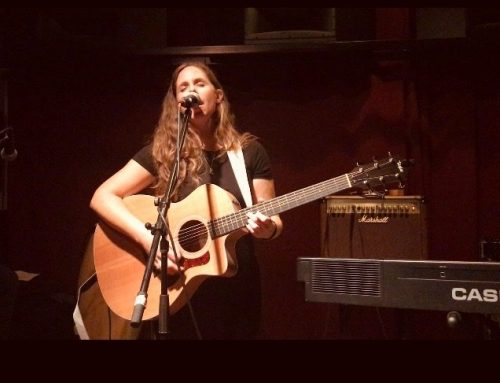
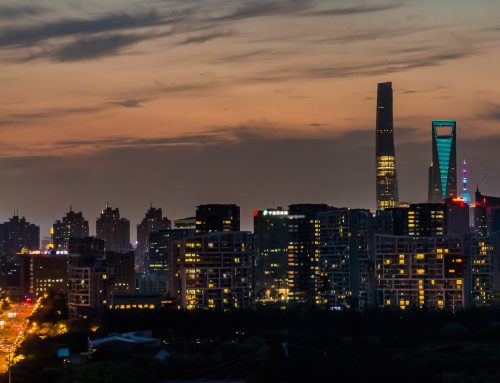
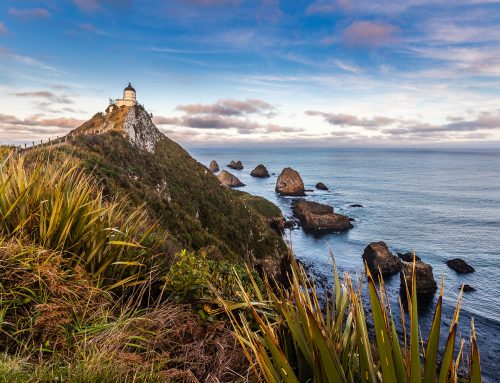
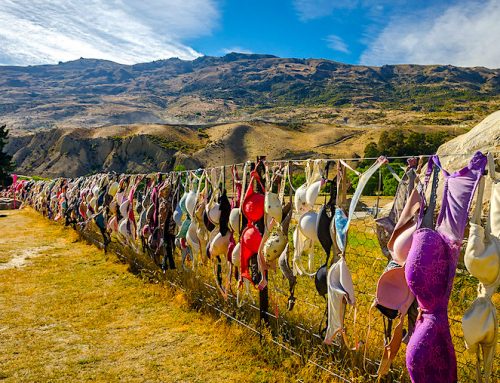
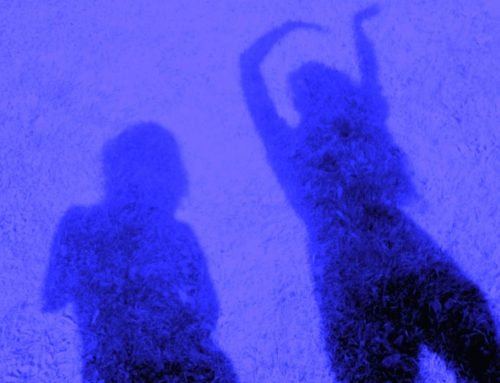
This is a beautiful piece for us creatives that beat ourselves up for not always having a final product. Thanks Em for reminding me to trust in the process and your sage advice. I love your website!!!
Thank you so much Penny for taking the time to read and for being my first ever comment! Your support means so much to me 🙂 I hope you will come back often and share your ideas and thoughts. It’s all about the process and the growth, not the final product, right?!
Em this is fabulous, I love how connected you are to your feelings, your place in the world around you and the wonderful impact you can have via sharing and creating. Keep in the state of flow. Much love old friend S
Hi Sarah!! Thank you so much!! Nice to hear from you too. As someone who was around during those early stages, you would really know how true all this is! I’ve still got those videos of us playing guitar and piano and switching instruments… Remember that?! haha! I hope you are well. xx
Hi Emily, so lovely to read about your journey and so proud to know you! Life sure does take a few twists before we make sense of it so often. Keep celebrating your unique self and know you are truly worthy. Lots of love and happiness Jill xox
Thank you Jill! And thank you for all your support over the years. I’m sure you can relate to the artistic struggle too, and I hope you are creating lots of beautiful art! xo